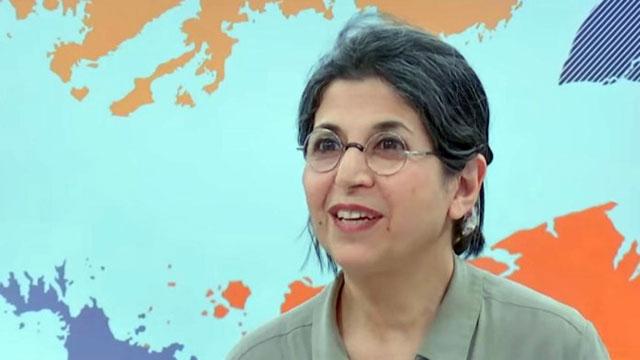You are here
UK-Australian academic moved to harsh Iranian jail
By AFP - Jul 28,2020 - Last updated at Jul 28,2020
SYDNEY — A jailed British-Australian academic has been moved to a notorious prison outside Tehran, Australian officials said on Tuesday, issuing a blunt warning to Iranian authorities that they are responsible for her safety.
A foreign ministry spokesperson told AFP they had confirmed that Kylie Moore-Gilbert has been transferred to Qarchak Prison, southeast of the Iranian capital.
The former lecturer in Islamic studies is currently serving a 10-year sentence for espionage, a charge she denies.
Qarchak prison is reportedly an all-women's facility in an unused chicken factory.
It is notorious for the ill-treatment of political prisoners and has been described as filthy and disease-ridden by rights groups.
Recent reports indicate the prison has also had a cluster of coronavirus cases.
"We hold Iran responsible for Dr Moore-Gilbert's safety and well-being," Australia's department of foreign affairs said in an unusually direct statement.
Australian officials said Ambassador Lyndall Sachs had recently visited Moore-Gilbert in Tehran's Evin jail, where she was previously held.
From there the academic had been able to be in phone contact with her family.
"We are urgently seeking further consular access to her at this new location," a spokesperson said.
"Dr Moore-Gilbert's case is one of the Australian government's highest priorities, including for our embassy officials in Tehran."
Rights activists in Iran claimed in May that Moore-Gilbert had attempted suicide multiple times and was upset with Australia's response to her detention.
But in a statement released the same month by the Australian foreign ministry, her family said they had spoken to her "a number of times" in recent months.
"She has strongly denied reports that she has attempted suicide or that she is being tortured," the family said.
"She seems to be in good health considering her situation."
The arrest of Moore-Gilbert, a lecturer at the University of Melbourne, was confirmed in September 2019 but her family said at the time she had been detained for months before that.
In letters smuggled out of the prison and published in British media in January, Moore-Gilbert wrote she had endured 10 months in solitary confinement, which had "gravely damaged" her health.
"In the past month I have been to the special care at Baghiatallah Hospital twice and the prison infirmary six times," she wrote, according to extracts in The Times.
Iran has released around 100,000 inmates, including 1,000 foreigners, to ease the pressure on the prison system during the pandemic, but Moore-Gilbert remains behind bars.
The Australian government has largely sought to deal with the case diplomatically behind closed doors.
Journalist and former Iran prisoner Jason Rezaian on Tuesday said that policy had clearly failed.
Related Articles
SYDNEY — A British-Australian academic who spent two years imprisoned in Iran has claimed Tehran tried to recruit her as a spy in exchange f
SYDNEY — An Australian-British academic has been freed in Iran after more than two years in jail for spying and said Thursday her release —
TEHRAN — French-Iranian academic Fariba Adelkhah, jailed in Iran since last year, has been transferred to a prison hospital after her health

















